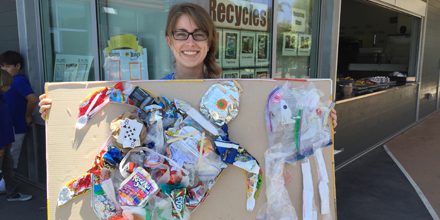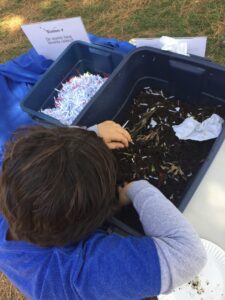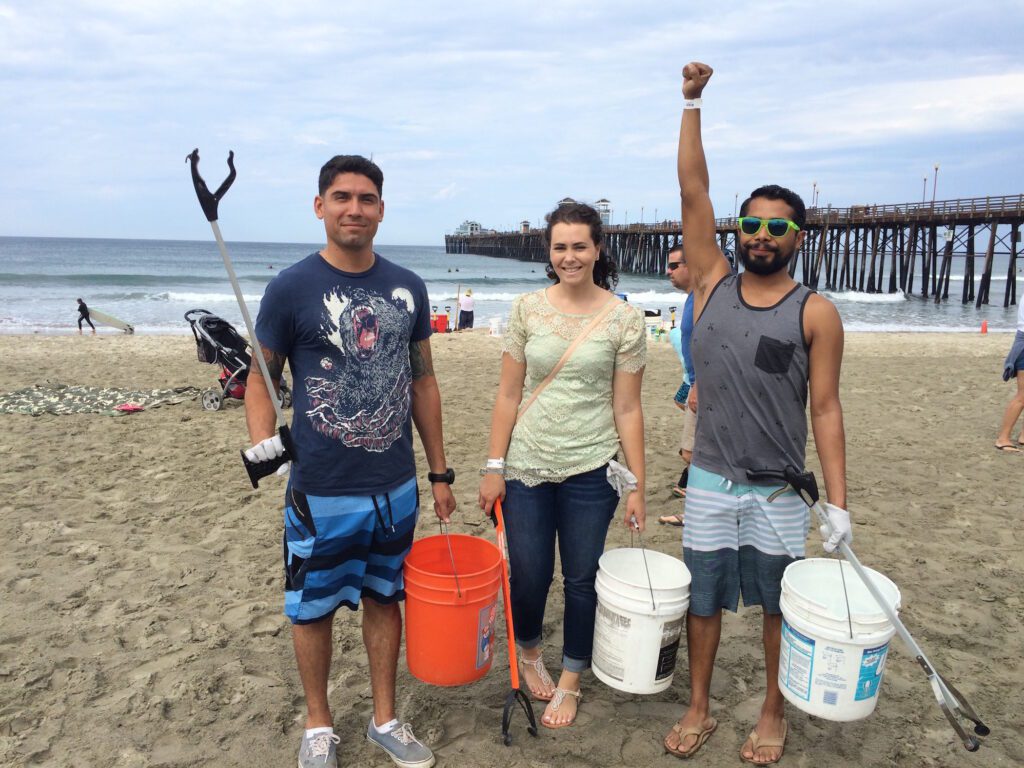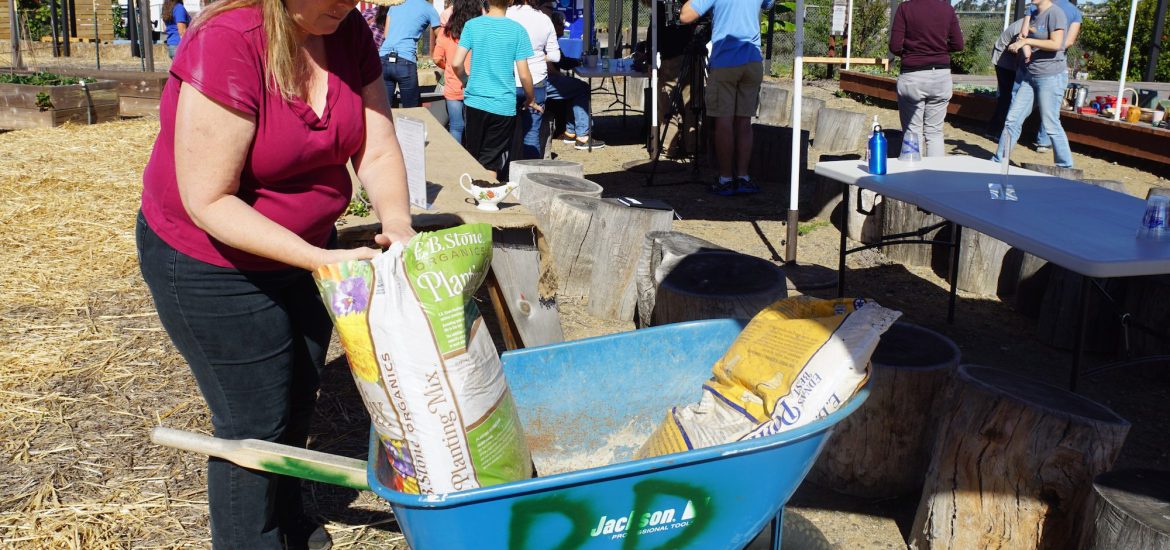
Today’s blog post was written by Education Manager, Emily!
The new year gives us a chance to set intentions for our lives. At the close of every December, I set goals for the coming year, write them on an index card (or recycled piece of paper!), and post them somewhere visible. Unlike more general New Year’s resolutions, I typically have success meeting my goals because I make sure to be specific and review them regularly to keep focus.
As you’re looking ahead to 2017, consider setting goals to adopt a zero waste lifestyle. By doing so, you will reduce the amount of trash sent to the landfill, become more sustainable, and minimize your carbon footprint. We’ve gathered a few ideas to help you get started.
- Buy local. Find your local farmer’s market and shop there once a month. Shopping locally reduces fossil fuel-based transportation costs.
- Conduct a waste audit to see what you’re currently throwing away. Spend a week collecting your trash to understand what you’re throwing away. Then, select one disposable item you can replace with a reusable alternative. Some ideas: reusable produce bags, safety razors, handkerchiefs, chopsticks, stainless steel straws, beeswax wraps, and sandwich bags.
- Be mindful of energy use. Start by selecting one appliance to unplug when not in use. Toasters, cell phone chargers, and fans are a great place to start. Or look into more sustainable options, like the SDG&E EcoChoice Program.
- Reduce food waste. Learn how to properly store fresh produce to slow rotting.
- Buy secondhand. Shop at a thrift store 3 times throughout the year.
- Learn a new skill. Canning, gardening, and sewing are great skills for your zero waste journey. Or learn to do your own car maintenance or bicycle repair.
- Shave two minutes off your shower time. Most shower heads have a flow of 2 gallons per minute. This minor adjustment will save four gallons per shower. If we make a very modest assumption that you shower once a week, that equates to 208 gallons saved over the course of the year. If you shower daily, that’s 1,460 gallons saved. For more ideas, check out The Hidden Water We Use by National Geographic.
- Try one recipe a week using bulk items. Soups, grains, granola bars, and baked goods are great dishes for bulk success!
- Plant an herb garden. You’ll only need to pick the amount you need per recipe instead of letting half a bunch of mint wilt in the back of the fridge. If you’re short on space, try a vertical garden.
- Learn! Read an article a week about zero waste and sustainability, listen to podcasts, watch videos, find books, and get inspired by others.
- Rethink your main mode of transportation. Research electric vehicles on the market. Even if you’re not currently in the market for a new vehicle, it’s useful to stay abreast of the current offerings so you can be a more informed consumer when the time comes.
- Carpool. Carpool to one event or outing per month.
- Plant native. Native plants require less water and maintenance. They also provide habitat for birds, butterflies and other native wildlife.
- Go vegetarian 3 days a week. Learn more about why with this YouTube video.

- Start composting. Check out our Classroom Composting lesson plan for basics about starting a vermicompost.
- Reduce paper use. Assess any print publication subscriptions (or junk mail), and find one to eliminate. Once you’ve read past copies of the periodical, contact your local library, elementary school, or scouting group to see if they’re interested in using your old copies.
- Attend a community cleanup. Not only will you be removing debris from our environment, but dedicating time to collect litter from the street will spur your motivation to reduce your reliance on single-use items. Subscribe to our Facebook events to stay up-to-date on our public cleanups!
- Get outside. Hike, stargaze, bike, swim, camp and explore. The more you connect with the natural world, the more dedicated you will be to preserving it for generations to come.



